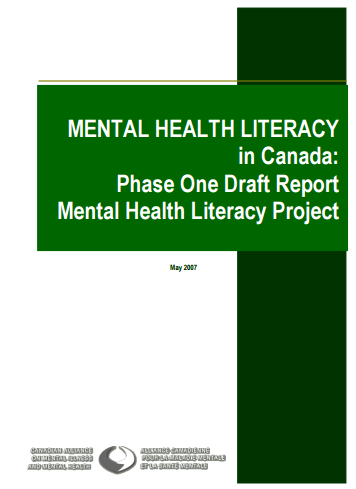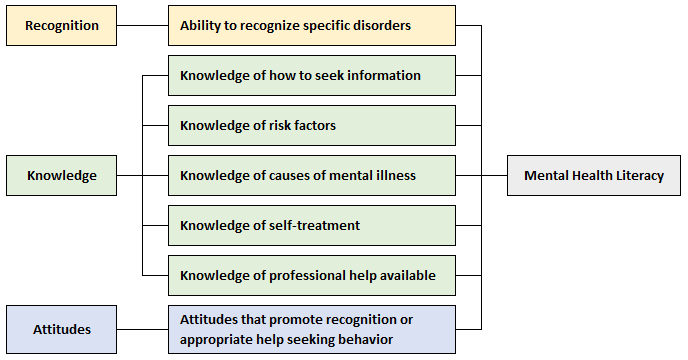It Begins with You
Health Literacy -> Behavioral Health Literacy FrameworksBehavioral Health Literacy Frameworks
Canadian Allaince on Mental Illness and Mental Health
CAMIMH (2007) is a comprehensive model of mental health literacy of what mental health literacy is, how it develops over time, and how to support it. “The skills and capacities that lead to personal and collective empowerment for health promotion are no different than those needed for mental health promotion.”
CAMIMH adopted Nutbeam’s categories of functional, interactive, and critical health literacy to develop the following framework for improving mental health literacy.

Functional literacy is enhanced by improving general literacy. Result = capacity to understand mental health risks/services and support better integration between general health and mental health literacy. Mental health providers should assume that individuals are at risk of not understanding information relevant to maintaining and improving their health
Interactive literacy is enhanced by focus on personal skill building and knowledge. Result = increased capacity and willingness to act on knowledge and make informed choices. Interactive literacy fosters person-centered care and informed decision making.
Critical literacy is enhanced by improving capacity to use information to mobilize individual, social, and political action. Peer support enhances critical mental health literacy through the development of social capital and supporting collective empowerment. Advocating for collaborative care both requires and enhances critical health literacy.
The full report can be accessed at: https://camimh.ca/wp-content/uploads/2012/04/Mental-Health-Literacy_-_Full-Final-Report_EN.pdf

A F Jorm
Jorm and his colleagues in 1997 identified seven components of mental health literacy, grouped into three categories, recognition, knowledge, and attitudes.
In 2000, Jorm published another article to introduce this concept to a wider audience, which is publicly available at:
https://bjp.rcpsych.org/content/bjprcpsych/177/5/396.full.pdf.

